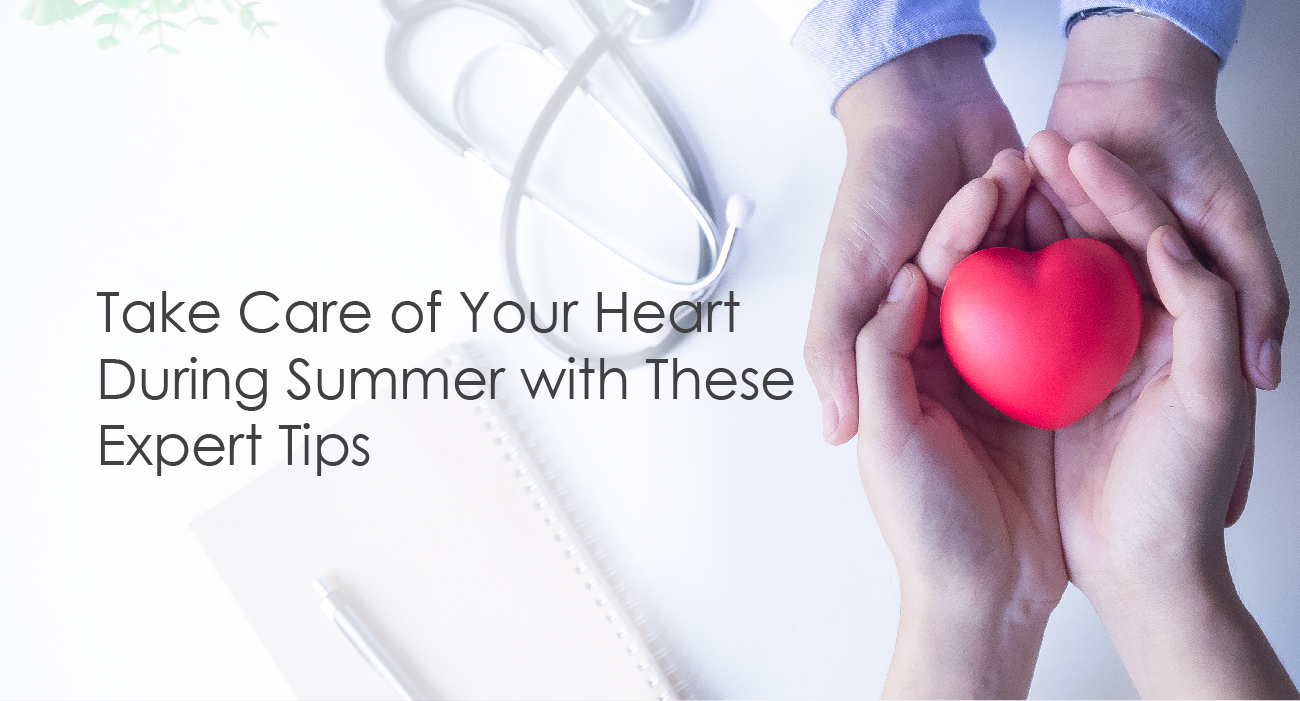05/31/2022
Summer is the season of sunburn and those tan lines while enjoying outdoor activities. However, before you spend more time in the sun, you need to know how much sun exposure is good for your heart health. The summer heat raises our body temperature, requiring the heart to work harder to keep the core temperature of the body cool. As per our experts from the heart surgery hospital in Jaipur, those who already have cardiac problems may suffer a heart attack or a stroke if sufficient precautions are not taken during the summer. Here we’ve discussed a few ways to protect your heart from that scorching heat.
How can heat affect your Heart?
When the temperature rises, the body reacts differently. To control body temperature, the heart must work harder and pump blood quicker to other regions of the body. Heatstroke can occur if the body is not appropriately cooled. Because the heart will have to work harder, those who already have cardiac problems are at a higher risk of heart attacks and strokes.
People with damaged or weakened hearts are more likely to suffer from heatstroke, dehydration, angina, and heart attacks, which can be fatal in some situations.
Symptoms of heatstroke:
- strong and rapid pulse
- dry skin with no sweating.
- unconsciousness
- Headaches (throbbing)
- Increased body temperature
- nausea, vomiting, or both.
If you notice these symptoms, move to a cooler location, stop exercising, and quickly cool down by dousing yourself with cold water and rehydrating.
When should you seek medical help?
Apart from the above-mentioned symptoms, if you notice,
- Changes in mental state or conduct, i.e., confusion, agitation, slurred speech, or seizure.
- Your skin may turn red as your skin may turn red.
- Shallow and fast breathing.
Get medical attention immediately. Heatstroke and stroke are not the same things. A stroke occurs when a blood vessel leading to the brain breaks or becomes blocked by a clot, resulting in a decrease in oxygen delivery to the brain.
Measures to take care of your heart:
As suggested by the Cardiac specialist in Jaipur, the following are the various ways that will keep your heart safe from the sun.
- Hydrate Yourself: Some cardiac patients may be on water restriction, but during the summer, water restriction should be lifted slightly to ensure that the body maintains a stable temperature. It keeps the body hydrated, allowing you to perform all of your activities with ease. Water helps to regulate the heartbeat and eliminate toxins from the body.
- Dress according to the Weather: During heat waves, the AHA suggests that people wear light-colored, breathable clothing made of cotton or textiles that resist sweat. According to the association, people should also wear hats and sunglasses and apply sunscreen with an SPF of at least 15 before going outside, reapplying it every 2 hours.
- A balanced Diet is a must: Try to include all of the necessary nutrients in your diet. Consume plenty of fresh fruits and vegetables, whole grains, and legumes. Avoid junk food, spicy foods, oily foods, canned foods, and processed foods. Smoking and drinking alcohol should be avoided as much as possible.
- Take Breaks: During outdoor activities, you should locate a shady spot to rest for a few minutes and hydrate, according to the AHA.
- Avoid Outdoor activities during peak times: According to the AHA, the time period with the highest risk for heat-related heart problems is midday to 3 p.m., because that is when the sun is at its fiercest. Exercise in the early morning or late evening, and bring a friend for safety. You can also exercise inside on a treadmill or stationary bike.
- Heat Acclimatization: Begin exposing yourself to the heat gradually, day by day. Spending a little extra time in hot weather each day will help your body acclimate to the excessive heat and humidity.
- Avoid drinking Tea or Coffee: On hot days, avoid alcoholic and caffeine-containing beverages. These beverages irritate the heart and impair your body's capacity to regulate its temperature.
- Talk to your Doctor: Patients with coronary heart disease may experience angina attacks throughout the summer due to increased pressure on the heart and may require oxygen. These individuals are also at increased risk of developing atrial fibrillation and congestive heart failure. As a result, people with heart disease should maintain their health and take the required precautions when the temperature rises.
Whether you have heart disease or not, taking care of your heart during the summer is always a good idea. For a second opinion on your health issues, you can consult our doctors practicing at the best hospital in Jaipur.

